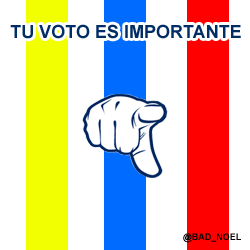Will You Marry Me, on the Blockchain?

Most people think of cryptocurrencies like Bitcoin or Ethereum when they hear about the Blockchain. But in case you haven’t noticed, Blockchain technology has moved far beyond cryptocurrencies over the past few years.
Along with Artificial Intelligence, the Blockchain has now established itself as the next big thing in the realm of technology. From helping create a decentralized internet to simplifying cross-border payments, blockchain technology is setting up the platform for a whole new series of innovations across sectors.
Perhaps, the most interesting and unforeseen of these innovations are smart contracts for marriage.
Blockchain Tech is Changing Everything, Including Marriage
Over the past couple of years, the concept of a smart contract that digitally triggers any number of events on the basis of pre-agreed metrics has become increasingly popular in the financial sector. For example, it is widely in use for trading where stock transfers happen automatically based on certain pre-specified criteria.
With the multifaceted advantages it brings along, it was only a matter of time till blockchain-powered smart contracts started influencing other aspects of life as well. And finally, in August 2014, things reached a whole new level as the first ever ‘blockchain wedding’ took place.
In a move to decentralize the state’s authority to give a stamp of approval on their relationship, David Mondrus and Joyce Bayo became the first couple in the world to have gotten married on the blockchain. More couples have followed suit since.
If you ignore the optics and the breakaway from social norms for a moment, blockchain marriages are not that surprising. In fact, they make the perfect sense considering that smart contracts are much safer and more reliable than the conventional methods of storing information – marriage certificates being no exception.
So, how does anyone get married on the Blockchain?
Well, there’s no set formula for it. David and Joyce’s wedding ceremony was held via Skype. The couple scanned and confirmed a QR-Code digitally, which was then directly embedded into the Blockchain database. Those who attended the wedding (again, via Skype) were also shown the QR-code.
Another much-publicized Blockchain wedding took place on July 17, 2016, between Bitcoin activist Oles Slobodenyuk and Irina Dukhnovskaya. At the celebration, the couple had their marriage certificate recorded in the Weddingbook.io platform on a Blockchain.
The Weddingbook.io website uses Cryptograffiti, which is basically a web service that enables people to encode hidden messages into the Bitcoin Blockchain. Oles and Irina not only permanently stored their wedding certificate in the Blockchain, but also embedded a list of witnesses and the wedding vows using a special online interface.
While it is evident that not all marriages have a happy ending, there is no dearth of optimistic Blockchain developers who seem to believe that more and more couples will follow suit in the times ahead.
Meanwhile, more Blockchain platforms have emerged that not only allow couples to register a marriage, but also help them to specify the exact conditions of family life as part of their prenup and marriage contracts.

